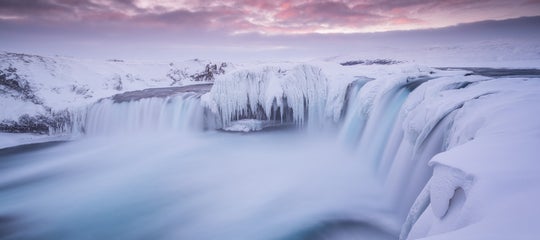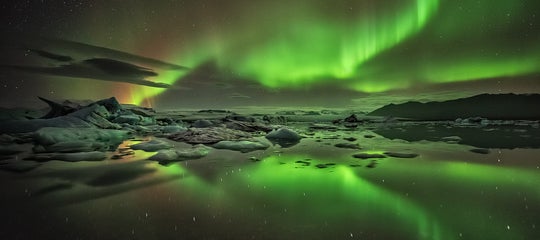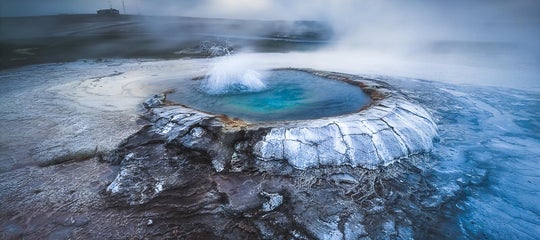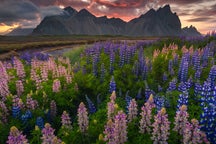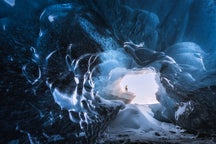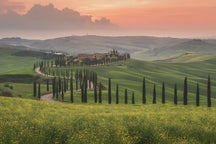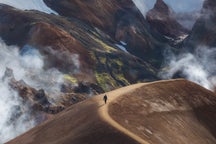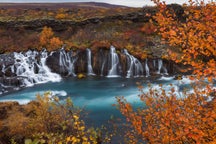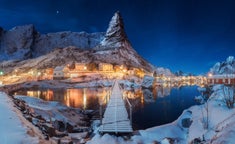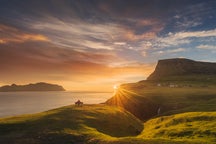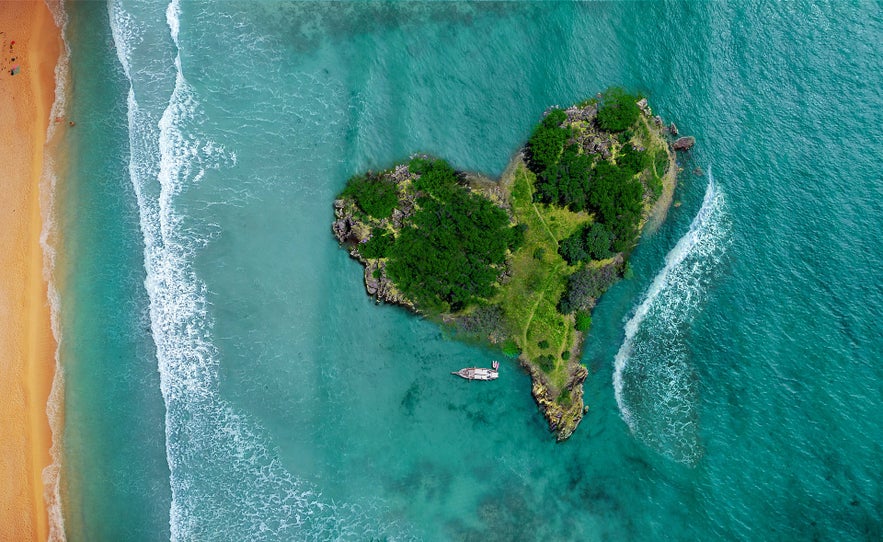
Are you looking for fun things to photograph in summer when the weather warms up? With long, hot days and clear night skies, this season is a wonderful time to get your camera out for photography.
- Find out What to Wear for Summer Photo Tours in Iceland
- Discover this Patagonia Summer Photography Tour in Torres del Paine
One of the best things about summer is that you can spend a lot of time outdoors, taking photos of all the things that you may have missed the most during winter. The carefree atmosphere, being drenched with sunshine and revelling in the summer heat will bring back the excitement of photography in droves, no matter how rusty you may be.
To keep your images fresh over this season, try stepping outside your usual comfort zone. Don’t worry if coming up with new things to photograph has left your mind blank as we’ve got you covered. We’ve come up with an incredible checklist of things you can shoot so all you’ll have to do is to clear your memory card and charge your batteries. Without any further ado, here are 13 amazing summer photography ideas that you can look forward to trying out this summer!
#13. Escape to the Beach
 The beach is a popular place to go for summer photography. Photo by: 'Unsplash'.
The beach is a popular place to go for summer photography. Photo by: 'Unsplash'.
What’s a summer vacation without a visit to the beach? There’s nothing quite like enjoying that warm sea breeze on a sunny day as you meander along the shoreline, digging your toes into the sand.
 Beaches provide lots of opportunities for different compositions. Photo by: 'Pxhere'.
Beaches provide lots of opportunities for different compositions. Photo by: 'Pxhere'.
Beaches are filled with seemingly limitless options for photography. From pebbles and footprints on the sand to soaring cliff faces and rocky sea stacks, you’ll be sure to find something that interests you when you explore the surrounding scenery.
 There is a lot to explore at the beach. Photo by: 'Unsplash'.
There is a lot to explore at the beach. Photo by: 'Unsplash'.
Try using a wide angle lens to reveal the extent of the horizon or to exaggerate foreground elements. You can create unique seascapes by getting close to a rock or a series of pebbles, capturing the moment that the waves splash around them. Experiment with a faster shutter speed to freeze motion or use a longer shutter speed to practice wave painting.
- See also: 25 Tips for Creative Beach Photography
#12. Change Your Perspective
 Aerial photography can give you an amazing perspective at the beach. Photo by: 'Pxhere'.
Aerial photography can give you an amazing perspective at the beach. Photo by: 'Pxhere'.
Beach photography can get a little monotonous if you don’t switch things up once in a while. When you’ve had enough of watching people sip their margaritas as they sunbathe on the sand, try capturing the scene from a different vantage point.
 Beach umbrellas look very different when seen from above. Photo by: 'Unsplash'.
Beach umbrellas look very different when seen from above. Photo by: 'Unsplash'.
Have you ever seen an aerial view of the beach? Using a drone can give you a top-down perspective that turns a busy beach scene into something a little more abstract. From the air, beach umbrellas morph into little pops of colour bursting forth from the sprawling golden sand. Meanwhile, ocean waves can take on a dreamlike quality with their white crests resembling bubbles as they move in and away from the shore.
 Make sure you get everyone's permission before you fly a drone over to take their picture. Photo by: 'Unsplash'.
Make sure you get everyone's permission before you fly a drone over to take their picture. Photo by: 'Unsplash'.
To make the most out of your aerial beach photography, try placing the emphasis on symmetry and balance within your compositions. The overall effect will be aesthetically pleasing and will do wonders to bring out the vibrancy of beach life.
#11. Use Complementary Colours
 Complementary colours can bring out the harmony in a scene. Photo by: 'Unsplash'.
Complementary colours can bring out the harmony in a scene. Photo by: 'Unsplash'.
Colour theory can be applied to all forms of art, including photography. It involves using combinations of colours that are opposite hues on the colour wheel in order to create contrasts. Doing so stimulates the viewer’s senses and helps to draw feelings from memories.
 Eye-catching combinations include colours on opposite sides of the colour wheel. Photo by: 'Unsplash'.
Eye-catching combinations include colours on opposite sides of the colour wheel. Photo by: 'Unsplash'.
The secret to using complementary colours effectively in your summer photography is to plan ahead for eye-catching combinations. Choose a few main colours that you want to work with that are usually associated with the season; warm peachy tones or bright shades of green or yellow do well in this context. Try not to choose too many colours at once, as the clash of hues can be distracting. After you’ve decided on which colours to use, you can match contrasting colours to create harmony in your final image.
 Too many colours can make an image look cluttered. Photo by: 'Unsplash'.
Too many colours can make an image look cluttered. Photo by: 'Unsplash'.
#10. Capture a Sunset Over Water
 The sun creates brilliant reflections over water. Photo by: 'Unsplash'.
The sun creates brilliant reflections over water. Photo by: 'Unsplash'.
If there is one thing that is synonymous with summer, it’s watching the sun rise and set over water. Oftentimes, you’ll be met by dramatic colours, reflections and light that encompasses the feeling of summer to a tee!
Lakes and oceans are great places for sunset photography, particularly when the surface of the water is still. You can even try photographing the sunset over a swimming pool or a dam – both can be just as beautiful as the ocean on the horizon.
 Clouds on the horizon can ruin the colours so make sure to monitor weather conditions. Photo by: 'Unsplash'.
Clouds on the horizon can ruin the colours so make sure to monitor weather conditions. Photo by: 'Unsplash'.
To capture the perfect sunset over water, keep an eye on the weather conditions well ahead of time. Clouds that are close to the horizon line may block out the sun as it sets, meaning that there might not be any colours in the sky.
#9. Capture a Sun Flare
One thing that stands out about photography during the sunny season is that you can end up with a gorgeous lens flare in your images. All you need to do is to shoot directly into the sun during any time of the day.
 You can capture a sunflare with a closed aperture and making sure that the sun is touching another object in your frame. Photo by: 'Unsplash'.
You can capture a sunflare with a closed aperture and making sure that the sun is touching another object in your frame. Photo by: 'Unsplash'.
Sun flares may be used to add a creative touch to your photography that helps to convey the mood and atmosphere of summer. They are a wonderful addition to portraits, lifestyle and wedding photographs.
- See also: Ultimate Guide to Wedding Photography
#8. Make the Most of Golden Hour
Sun flares aren’t the only way that you can add a little warmth to your summer photographs. You can also use directional lighting to bring out the nostalgia of lazy summer days.
 Golden hour is the best time for summer photography. Photo by: 'Unsplash'.
Golden hour is the best time for summer photography. Photo by: 'Unsplash'.
Take advantage of the golden hour, when the lighting is soft and the sun is low on the horizon. During this time, the shadows within the scene can often be less prominent. This can make a huge difference to your photography, particularly for landscapes, architecture and shooting portraits.
#7. Look for Patterns
To add an extra dynamic layer to your summer photography, try looking for textures and patterns. You can find them everywhere, all the way from the city to nature. Repetitive elements can turn even the most boring of subjects into an exciting image.
 Patterns are all around us. Photo by: 'Unsplash'.
Patterns are all around us. Photo by: 'Unsplash'.
To make the most of patterns and textures, get in close so that you can focus on the details with a macro lens. You can use a wider aperture to blur some of the foreground and background, creating a nice frame for the textures and to give your image some depth.
 Use colour and contrast to emphasise patterns and textures. Photo by: 'Unsplash'.
Use colour and contrast to emphasise patterns and textures. Photo by: 'Unsplash'.
With images like these, you can also place the emphasis on the patterns and textures by increasing colour saturation and contrast. Combine different patterns with lines, angles and shapes to create intriguing compositions.
 Repetitive shapes are aesthetically pleasing when combined with good compositions. Photo by: 'Unsplash'.
Repetitive shapes are aesthetically pleasing when combined with good compositions. Photo by: 'Unsplash'.
#6. Get Underwater
 Underwater photography can be challenging. Photo by: 'Unsplash'.
Underwater photography can be challenging. Photo by: 'Unsplash'.
Summertime heralds some of the best conditions for underwater photography. You can capture all of the summer fun from your swimming pool to the sea, wherever you may be!
 You can get underwater in your local swimming pool. Photo by: 'Unsplash'.
You can get underwater in your local swimming pool. Photo by: 'Unsplash'.
Learning underwater photography can be challenging but the results are rewarding. Some of the techniques may be very different to photography on land but don’t worry, you’ll have the entire season in which to practice!
 Ever tried to have a pool party underwater? Photo by: 'Unsplash'.
Ever tried to have a pool party underwater? Photo by: 'Unsplash'.
Unless your electronics are waterproof, then you’ll likely need an underwater housing for your camera, as well as other specialised underwater photography equipment. Depending on what you want to achieve, this might include lighting, macro lenses or even scuba diving gear.
 Snorkelling can provide excellent opportunities for underwater photography. Photo by: 'Unsplash'.
Snorkelling can provide excellent opportunities for underwater photography. Photo by: 'Unsplash'.
The beauty of underwater photography is that you can capture some extraordinary images of marine life and coral reefs, even when you’re just snorkelling around by the beach during your vacation. Try making “over-unders”. These are underwater images where the photo appears to be split, with half of the frame above and half below the water. For this, you’ll need to use an ultra wide-angle lens, such as a fisheye, with a large underwater dome port.
#5. Follow a Sport
 Summer sports make for great opportunities to practice your photography. Photo by: 'Unsplash'.
Summer sports make for great opportunities to practice your photography. Photo by: 'Unsplash'.
Do you have a summer sport that you follow? Perhaps you enjoy surfing at the beach or skateboarding at the local half-pipe? Maybe you even have kids who spend every weekend during the summer playing tennis or frisbee?
 Photographing the surf can be done with a telephoto lens from shore or getting in amongst the action! Photo by: 'Unsplash'.
Photographing the surf can be done with a telephoto lens from shore or getting in amongst the action! Photo by: 'Unsplash'.
Photographing a summer sport is a great way to spend time out in the sunshine. You can either attach an adventure camera such as a GoPro to yourself while you play or volunteer to be the one taking the photos as everyone else is in action.
 Photographing summer sports is a great way to get outside into the sun. Photo by: 'Unsplash'.
Photographing summer sports is a great way to get outside into the sun. Photo by: 'Unsplash'.
Try using a fisheye lens for a fascinating and unique take on sports photography. This way, you can get up close to the action and capture some really interesting distortion effects!
#4. Strike a Pose
Make the most out of that beautiful summer glow by heading out with a friend or your family for some environmental portrait photography. You can achieve that typical summertime look by shooting during the golden hour just after sunrise or before sunset at the end of the day.
 You can use props such as ice-cream to liven up the summer scene. Photo by: 'Unsplash'.
You can use props such as ice-cream to liven up the summer scene. Photo by: 'Unsplash'.
To make sure that everybody is smiling and nobody is squinting, position your subjects so that they are not facing into the sun. You can use props to liven up the scene or capture candid summer portraits when your subjects are enjoying themselves, rather than looking at the camera.
- See also: 4 Day Summer Photo Workshop in Iceland
#3. Check Local Events
 Festivals and other events are great to shoot during summer. Photo by: 'Unsplash'.
Festivals and other events are great to shoot during summer. Photo by: 'Unsplash'.
There are usually a lot of things to do in summer so it’s worthwhile to check what’s going on in your local area. Events such as summer festivals, outdoor concerts and night markets are great places to get out and about with your camera.
 You might have to get up early to photograph hot air balloons. Photo by: 'Unsplash'.
You might have to get up early to photograph hot air balloons. Photo by: 'Unsplash'.
Put a twist on things by approaching your photography with a particular theme in mind. For example, if you will be hitting a lot of food trucks during the summer, then why not focus on a delicious local treat or photographing certain aspects of the food trucks themselves?
 Tell a story with photos from a music festival. Photo by: 'Unsplash'.
Tell a story with photos from a music festival. Photo by: 'Unsplash'.
If you’ll be spending several days at a music festival, then aim to tell a story with your images. This might involve capturing everything from setting up your tent to dancing with your friends and the aftermath (or the clean-up, whichever comes first)!
- See also: 7-Day Senja Summer Hiking Photo Tour
#2. Get Out in Nature
 Summer is the best time to go camping, hiking and exploring. Photo by: 'Unsplash'.
Summer is the best time to go camping, hiking and exploring. Photo by: 'Unsplash'.
Summer is the best season for camping, spending your days hiking, exploring and immersing yourself in nature. The best thing about these summer activities is that they provide a great opportunity for you to bring along your camera. Aside from capturing the scenery, you’ll be able to take home a variety of memories as you document your adventure, leaving only footprints in your wake.
 There is a lot to photograph out in nature during summer. Photo by: 'Unsplash'.
There is a lot to photograph out in nature during summer. Photo by: 'Unsplash'.
Aside from human activity, there is a lot to photograph out in nature during the summer,. This includes wildflowers, brewing storms, wildlife and even desert landscapes. Although the desert may seem barren, you’d be surprised at what can actually survive out there. It’s a location that can offer many options for photography!
- See also: Ultimate Guide to Desert Photography
#1. Use a Different Focal Length
 Different focal lengths allow you to see the world in different ways. Photo by: 'Unsplash'.
Different focal lengths allow you to see the world in different ways. Photo by: 'Unsplash'.
Last but not least, if you’ve gotten into the rut of using the same lens for everything, then summer is a great time to really start switching things up.
 A wide angle lens can help you to capture all the action going on in the scene. Photo by: 'Unsplash'.
A wide angle lens can help you to capture all the action going on in the scene. Photo by: 'Unsplash'.
Different focal lengths are suited to different types of scenes. Depending on which lens you use, you can create all sorts of interesting effects that might differ completely to what you’re used to doing.
 A medium telephoto lens can keep the scene a bit more intimate. Photo by: 'Unsplash'.
A medium telephoto lens can keep the scene a bit more intimate. Photo by: 'Unsplash'.
If you always use a wide angle lens, then try using a telephoto for more abstract photography. You can even swap out zoom lenses for prime lenses, or vice versa.
 A mid-range zoom lens from the air will allow you to capture objects on the ground without making them appear too small or far away. Photo by: 'Pxhere'.
A mid-range zoom lens from the air will allow you to capture objects on the ground without making them appear too small or far away. Photo by: 'Pxhere'.
When you use a different focal length, you force yourself to change how you see the world around you. This can open up an infinite number of possibilities, giving you more ideas for summer photography!
About the author: Serena Dzenis is a landscape photographer based in Iceland. You can find more of her work on her website or by following her on Facebook and Instagram.
Have you got any other exciting summer photography ideas? Have you tried any of the things that we've mentioned above? Leave a comment below!


